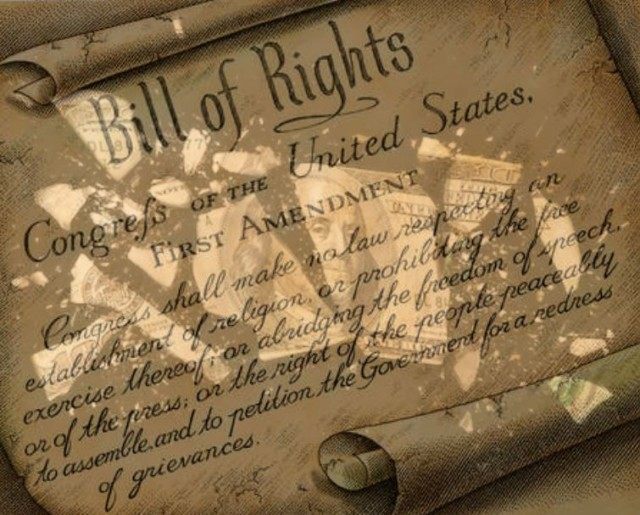Editor’s Note: This Op-Ed was submitted to Breitbart Texas by the Texas Public Policy Foundation and was written by Paul Avelar.
The government is not allowed to ban peaceful political advocacy or violate your privacy rights just for exercising your First Amendment rights. But some activists and politicians are using the scare term “Dark Money” to shut down anonymous political speech and take away our free-speech rights.
“Dark Money” is an ominous-sounding term for what is just ordinary Americans donating to nonprofit groups that support issues they care about. For decades now these groups have been allowed to engage in political speech while keeping their donors anonymous. But today, certain activists don’t like that people can support causes and ideas without the government—and everyone else—knowing about it. They claim that anonymous speech and association is inherently suspect and must be policed.
But there is a long and proud history of anonymous political speech and association in America. From the very founding of our country—and publications like “Common Sense” and The Federalist Papers—Americans have been free to come together to make important political arguments while keeping their identities secret. Anonymity protects people with controversial views from harassment and intimidation. It allows ideas to be judged on their own merits, rather than just being subject to ad hominin attacks. And by protecting controversial speakers, we protect our own right to hear and consider the widest variety of ideas and viewpoints. Given all this, it should be no surprise that the U.S. Supreme Court has long recognized that anonymous speech and association are an honorable part of the tradition of advocacy and dissent in our country and protected by the First Amendment.
If these anti-privacy activists have their way, however, your donation to Planned Parenthood to support abortion rights will be on a list for anyone to see. Your financial support for or opposition to a hot-button issue like same sex marriage will be in a searchable database online. Your neighbors and your employers will be able to Google you to find out if you pay dues to be a member of the NRA or send money to the Sierra Club.
To add insult to injury, the reason these activists are attacking anonymous political speech is because they fear voters are too easily swayed at the polls.
They insist that “Dark Money” is buying elections. But money for speech just allows more people to hear the speech. Money does not mean that voters will agree with what is being said. Americans are no more controlled by money for political speech than they are by money for other kinds of speech. Americans did not embrace New Coke or the Ford Edsel just because big advertising campaigns said they should. Neither do they embrace New-Coke political ideas just because advertising campaigns say they should.
Moreover, Americans are more than smart enough to understand and evaluate anonymous political speech, just as we can any other kind of anonymous speech. We can evaluate speech’s anonymity along with its message, and the First Amendment means it is for us to decide what is responsible, what is valuable, and what is truth, not the government, and not a bunch of unhappy activists.
Every American has the right to support causes they believe in without fear of harassment and intimidation. To change our laws to violate people’s privacy, to put people’s personal information in government databases and Google searches, will drive even more people away from political engagement. It will minimize controversial or unpopular speakers and ideas and our ability to hear all points of view. This is not the way our democracy—or our First Amendment—is meant to operate.
Paul Avelar is an attorney with the Institute for Justice. He has litigated on behalf of individuals and groups across the country to challenge campaign finance laws that violate the First Amendment.

COMMENTS
Please let us know if you're having issues with commenting.